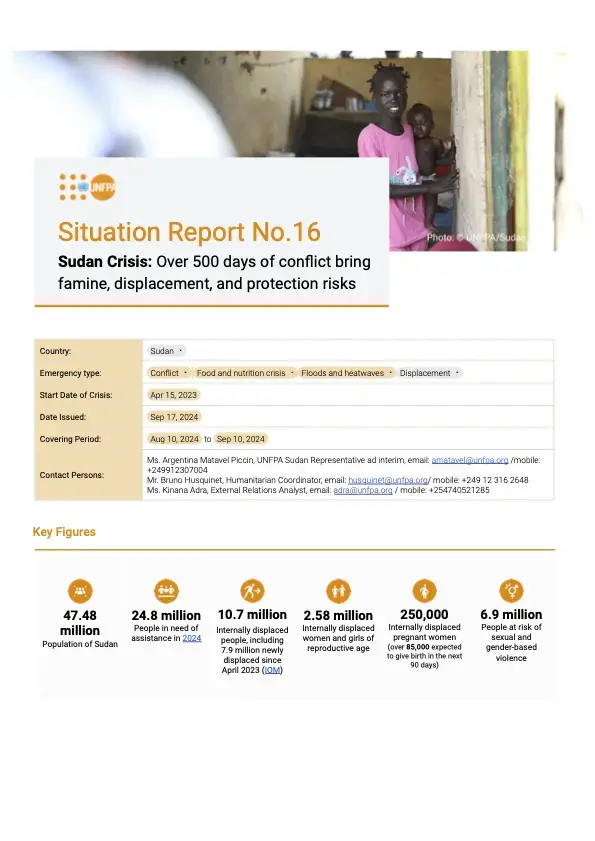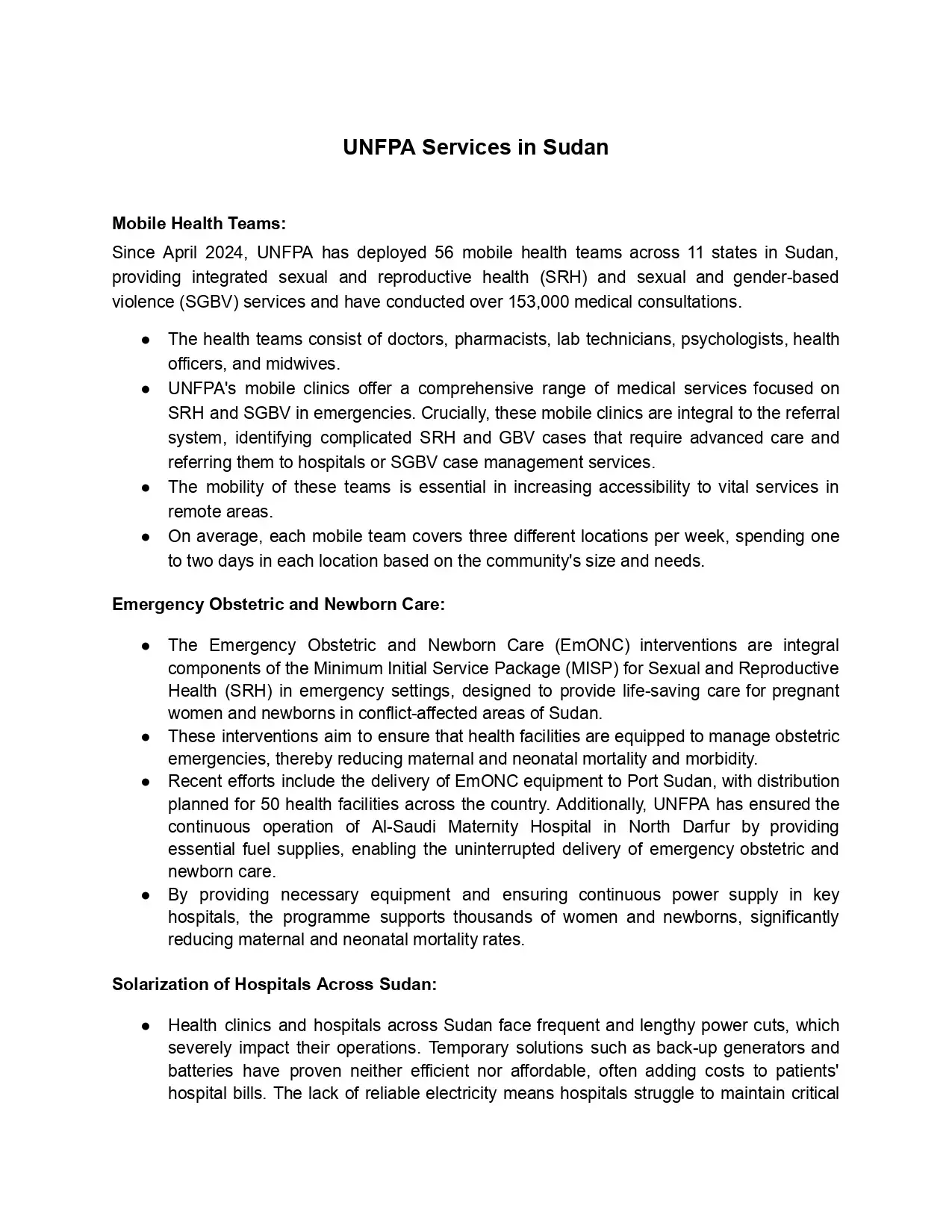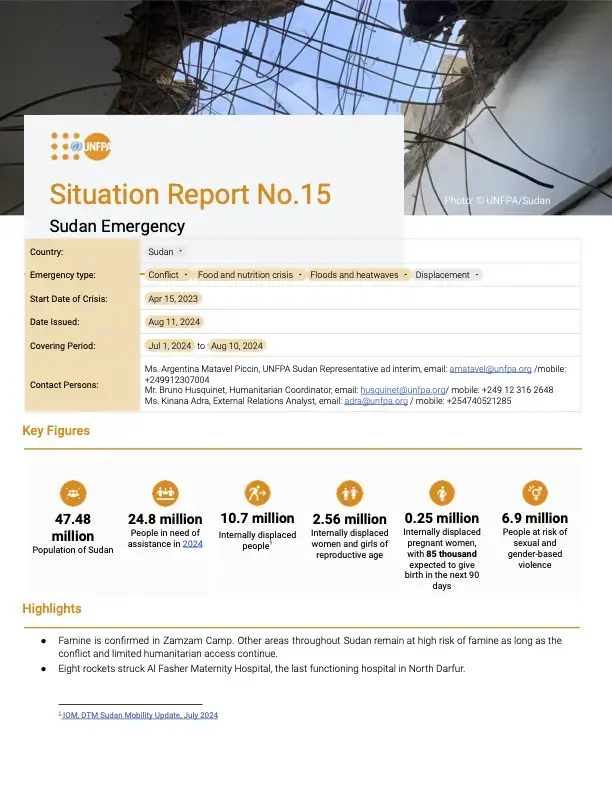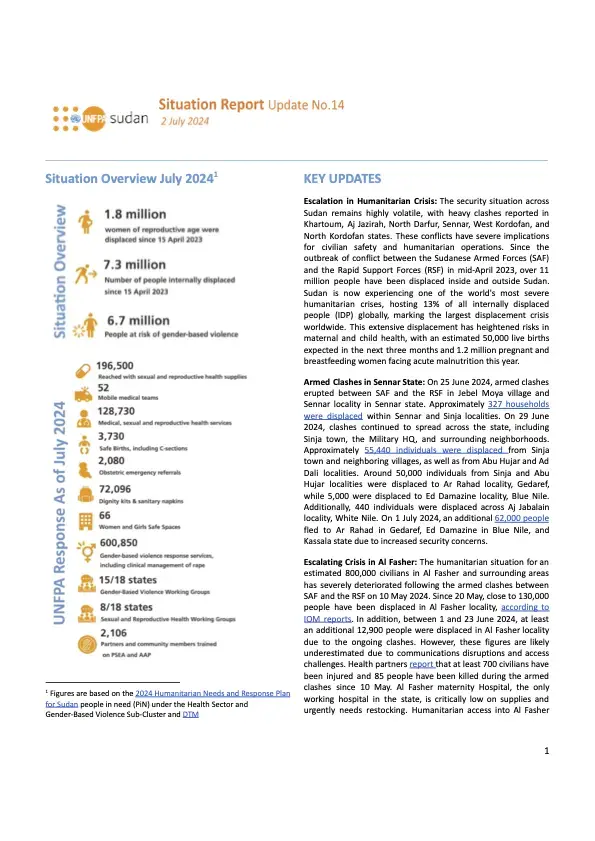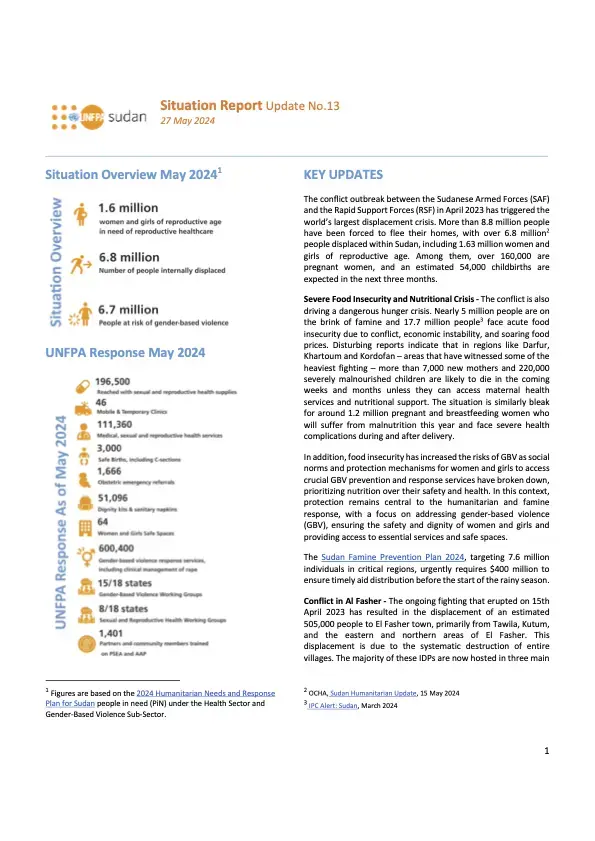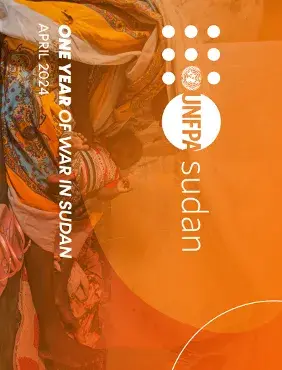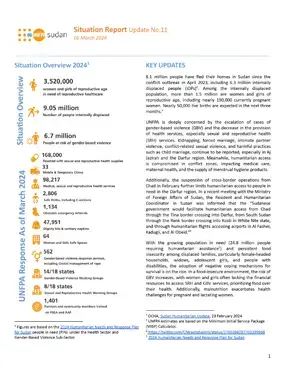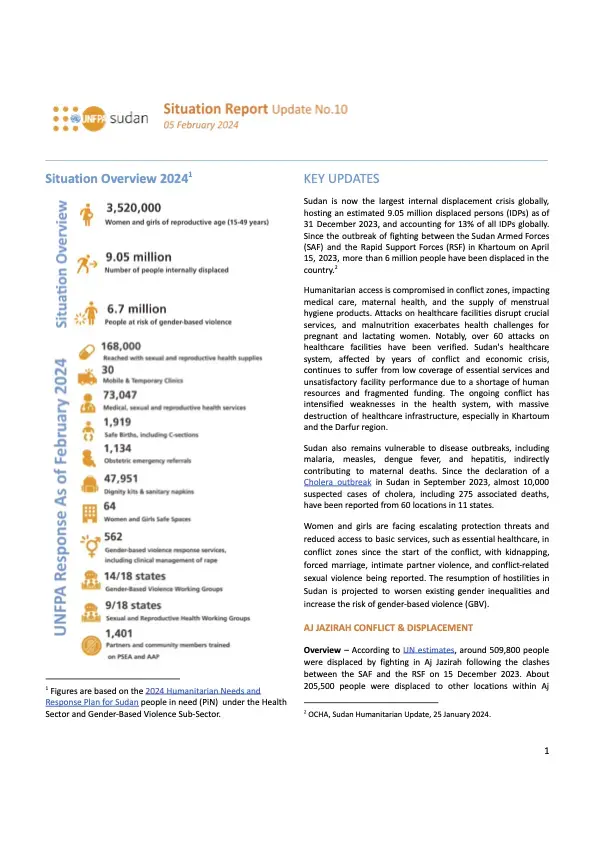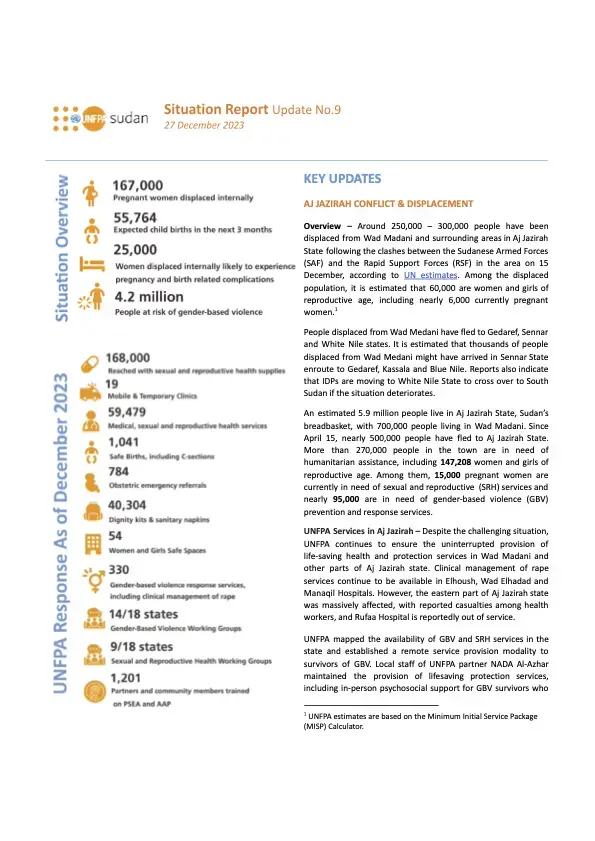Publications
Publications
Situation Report
UNFPA Sudan Emergency Situation Report #16
Sudan's conflict, now over 500 days long, has sparked the world’s largest crisis in hunger, protection, and displacement, disproportionately impacting women, children, and marginal...
Read more
Fact Sheet
UNFPA Services in Sudan
UNFPA has been at the forefront of delivering life-saving health and protection services in Sudan, particularly focusing on women, girls, and vulnerable communities. From mobile he...
Read more
Situation Report
UNFPA Sudan Emergency Situation Report #15
Sudan is facing one of the world's most severe humanitarian crises, with over 10.7 million people displaced, including 255,000 pregnant women. Conflict continues to devastate commu...
Read more
Situation Report
UNFPA Sudan Emergency Situation Report #14
Sudan is facing a severe humanitarian crisis, with over 11 million people displaced and 25.6 million suffering from acute hunger due to ongoing conflict. The situation is dire, par...
Read more
Situation Report
UNFPA Sudan Emergency Situation Report #13
The conflict between the Sudanese Armed Forces (SAF) and Rapid Support Forces (RSF) has triggered the world’s largest displacement crisis, with over 8.8 million people forced to ...
Read more
Publication
One Year of War in Sudan
Situation Overview One year of war in Sudan has triggered the world's largest displacement crisis. 8.5 million people have been forced to flee their homes, with over 6.5 mil...
Read more
Situation Report
UNFPA Sudan Emergency Situation Report #11
8.1 million people have fled their homes in Sudan since the conflict outbreak in April 2023, including 6.3 million internally displaced people (IDPs). Among the internally displace...
Read more
Situation Report
UNFPA Sudan Emergency Situation Report #10
Sudan is now the largest internal displacement crisis globally, hosting an estimated 9.05 million displaced persons (IDPs) as of 31 December 2023, and accounting for 13 percent of ...
Read more
Situation Report
UNFPA Sudan Emergency Situation Report #9
Clashes in Aj Jazirah have displaced up to 300,000 people, with 60,000 women and girls of reproductive age in urgent need of support. UNFPA is ensuring life-saving health services,...
Read more

